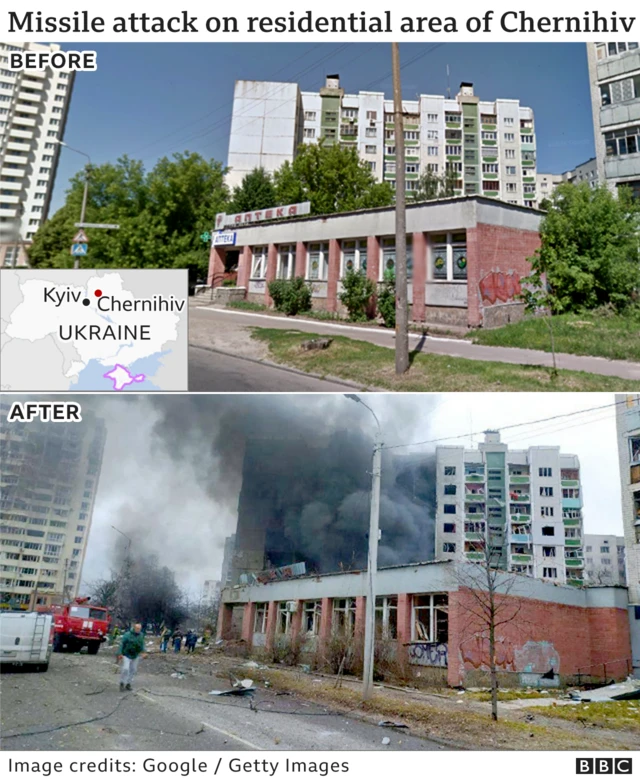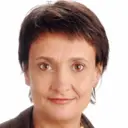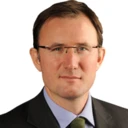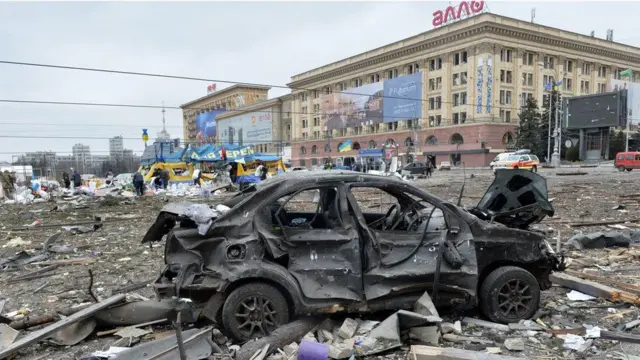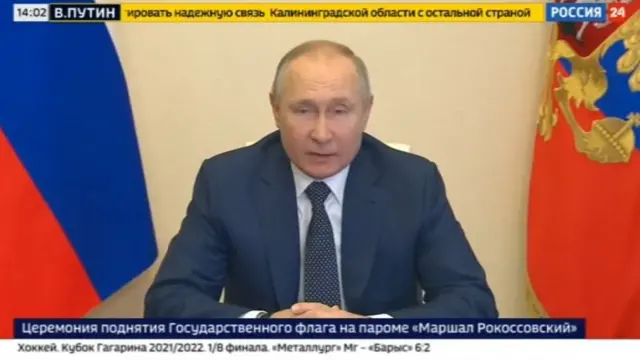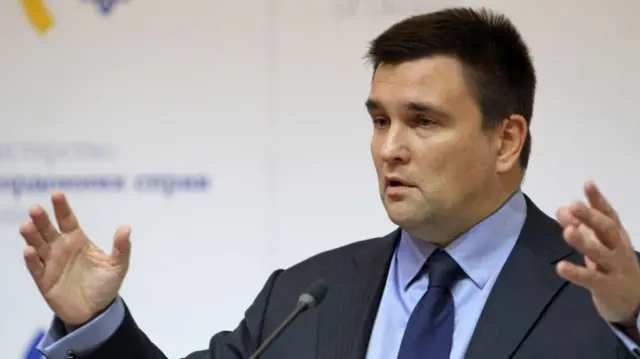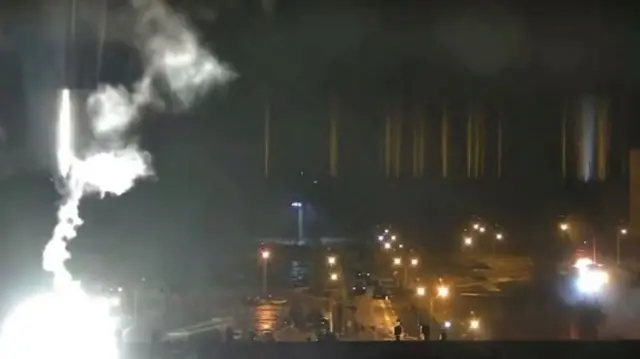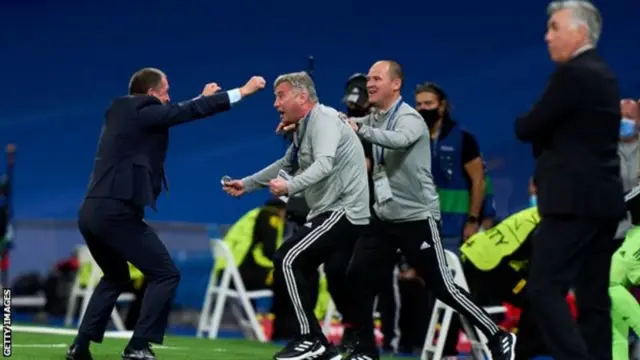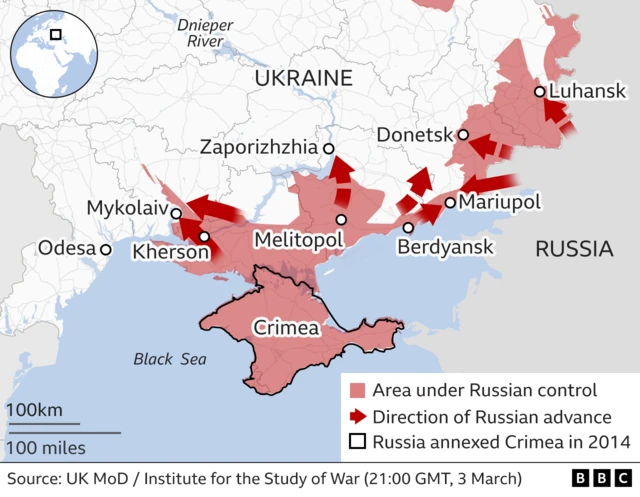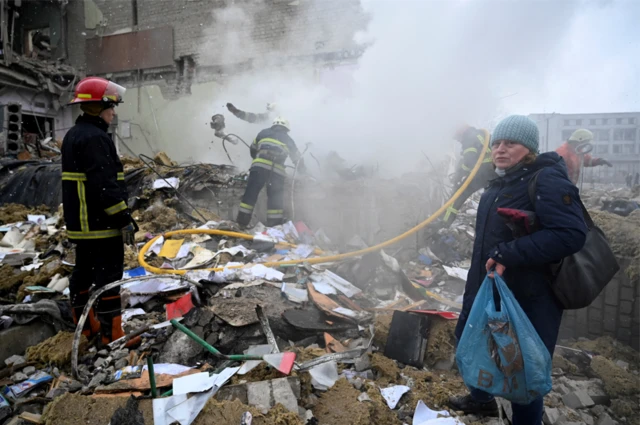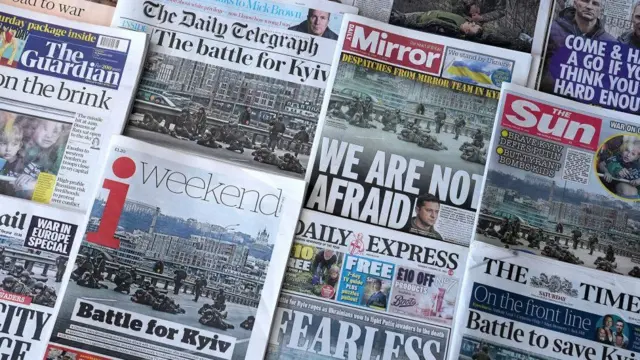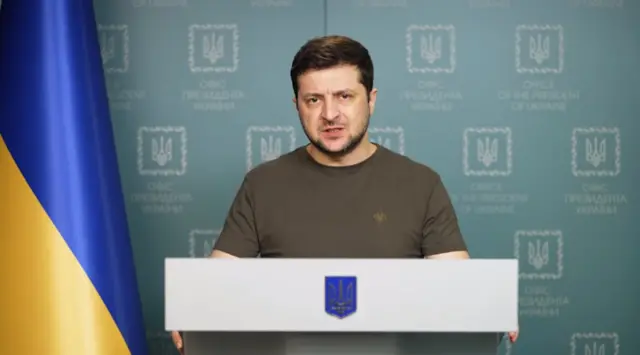In Pictures: Ukraine before and after the warpublished at 11:56 GMT 4 March 2022
As you have seen in our coverage, Russia continues to advance its invasion of Ukraine with attacks on several key cities.
As Russian forces begin to get closer to the capital, Kyiv, some deadly aerial attacks on the city have already taken place.
The apartment block below was hit by a Russian missile in the early hours of last Saturday.
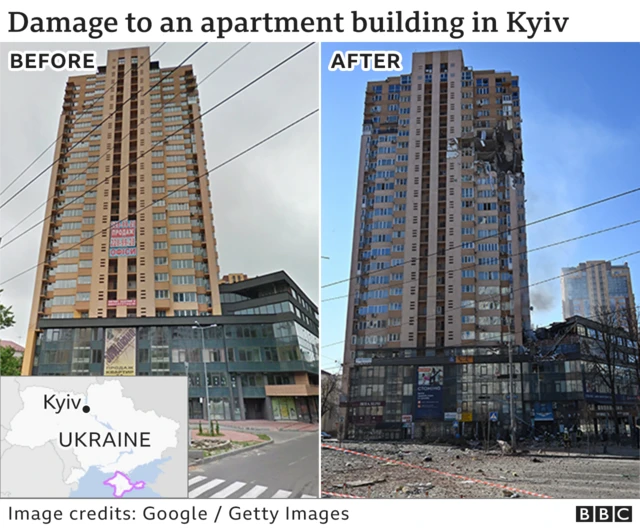
The small city of Irpin sits 20km (12 miles) northwest of Kyiv and has found itself on the frontline between Russian and Ukrainian forces over the past week.
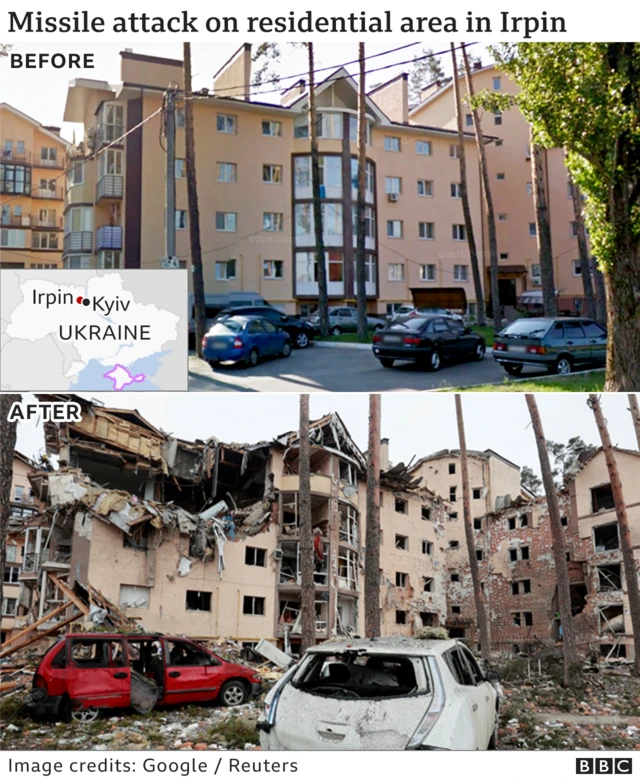
While Kharkiv, Ukraine's second-largest city in the north-east of the country, has been the focus of intense bombardments by the Russians.
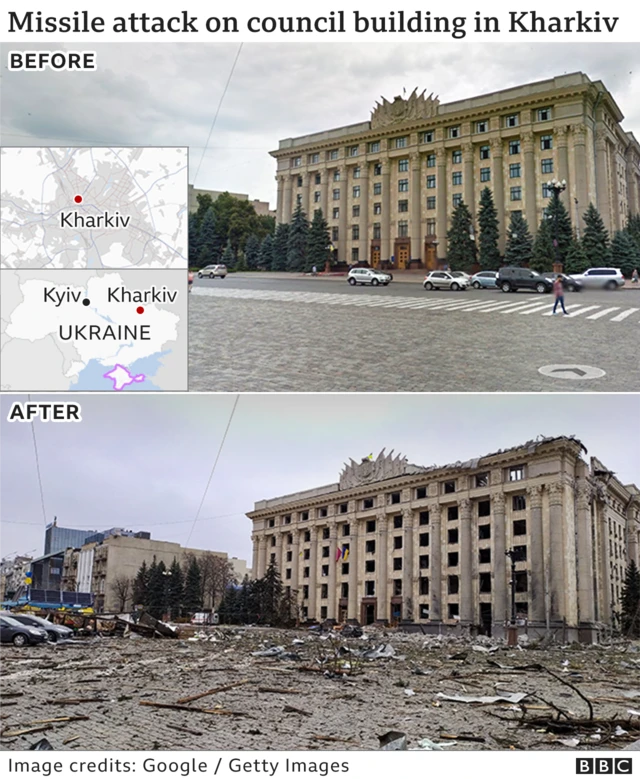
Chernihiv, a city 120km (75 miles) to the northeast of Kyiv, has also faced heavy shelling in recent days by Russian forces invading from the north.
